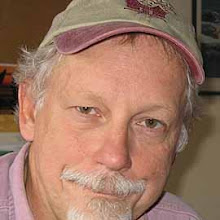Acadia's Schoodic Education and Research Center -- SERC, for short -- is one of about 20 "Research Learning Centers" (RLCs) distributed across the 380-some operating units within the National Park Service. All the RLCs share a common mission. Here it is:
The Mission of National Park Service Research Learning Centers is to increase the effectiveness and communication of research and science results in the national parks through facilitating the use of parks for scientific inquiry, supporting science-informed decision making, communicating the relevance of and providing access to knowledge gained through scientific research, and promoting science literacy and resource stewardship.So, just what is "science literacy?" And ... is it something that children learn in school?
There is a really wonderful, readable, even entertaining book with the title Science Matters, written by Robert M. Hazen and James Trefil. The subtitle is "Achieving Scientific Literacy" -- they take up the question of what scientific literacy right at the start of the book, in the preface:
For us, scientific literacy constitutes the knowledge you need to understand public issues. It is a mix of facts, vocabulary, concepts, history, and philosophy. It is not the specialized stuff of the experts, but the more general, less precise knowledge used in political discourse. If you can understand the news of the day as it relates to science, if you can take articles with headlines about genetic engineering and the ozone hole and put them in a meaningful context--in short, if you can treat news about science in the same way that you treat everything else that comes over your horizon, then as far as we are concerned you are scientifically literate. (p. xii)It should be pretty easy to figure out why the National Park Service cares about scientific literacy. When the National Park Service was created by Congress in 1916, the agency was charged with protecting and managing the parks in order "to conserve the scenery and the natural and historic objects and the wild life therein and to provide for the enjoyment of the same in such manner and by such means as will leave them unimpaired for the enjoyment of future generations." So, if the NPS expects people to come to intelligent decisions about, say, the use of coal to meet our country's power needs, it would of course be important for people to have some understanding of how stack emissions from plants in the Midwest can affect the water chemistry and level of mercury up here in Acadia. Maybe even more important, the NPS would need people to have some understanding of how hard -- impossible, really -- it is to reverse some kinds of changes in complex, ecological system like Acadia or Yellowstone. Scientific literacy isn't about understanding all the details of the chemistry or ecology -- but it does require having a general understanding of how living systems work.
It seems like a pretty simple argument: If you want people to support something like restrictions on stack emissions or a reduction in carbon emissions, you need to be sure they have enough general understanding that they can see, for themselves, why these restrictions are important.
But, as Hazen and Trefil explain, actually ensuring that people get that kind of information is not so easy ...
...This argument, as simple as it seems, runs counter to powerful institutional forces in the scientific community. To function as a citizen, you need to know a little bit about a lot of different sciences--a little biology, a little geology, a little physics, and so on. But universities (and, by extension, primary and secondary schools) are set up to teach one science at a time. Thus a fundamental mismatch exists between the kinds of knowledge educational institutions are equipped to impart and the kind of knowledge the citizen needs. (p. xvii)The simplicity of the this observation--and the familiarity of the educational system that Hazen and Trefil describe--can make it easy to underestimate the serious implications of what they are saying. Institutional change is hard -- not because of lack of will or commitment, but simply because it is hard enough to try, day after day, to make a system work. Taking it apart and finding a way to approach the whole thing differently can be overwhelming.
I believe that institutions like that National Park Service can be critically important to enabling the changes in science education necessary to support science literacy. Part of the reason is that the NPS mission embraces education, but also reaches beyond it -- driven by the need to conserve parks "unimpaired for the enjoyment of future generations." It is the pursuit of that broader mission that makes it easier to see why science literacy is so critically important and to invest in it.
At Acadia Partners, when we work with teachers and students to help them begin thinking productively about the biology, the geology, the chemistry, and the ecology involved in understanding how mercury moves in a watershed and how it affects life, we are working to help teachers and students develop scientific literacy and put it to use. The goal is not to understand all of these matters in detail -- that would be impossible in a semester or two in college, let alone high school. Instead, we try to help teachers enable students to understand enough of the key mechanisms and concepts to see how the parts of the system fit together. It is a first step toward science literacy.

I couldn't agree more. Some of the most interesting work being done in science these days is by cross-functional teams. A good example is using Quantum theory to provide an explanation of why photosynthesis is more efficient than anything man has been able to devise. As the volume of information in the world increases and specialties have an even tighter laser focus, scientific literacy is more critical than ever.
ReplyDelete